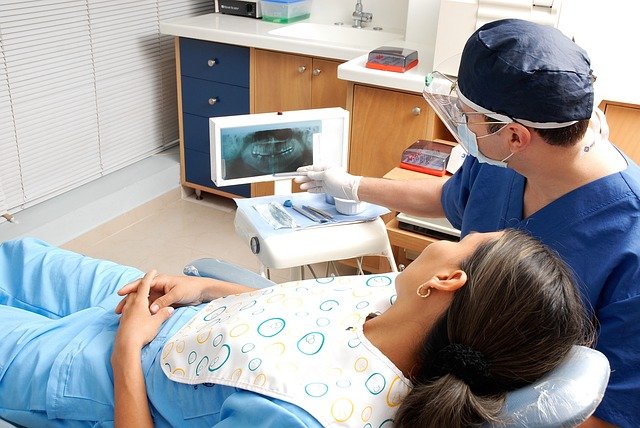Dental Implants Through HSE Dental Scheme: Complete Guide
In Ireland, dental implants through the HSE are typically reserved for patients with serious clinical needs. This guide helps you understand who qualifies, how to get referred, what documentation is needed, and what happens if your request is denied.

Eligibility for HSE-Funded Dental Work
The HSE dental scheme primarily covers emergency dental care and basic treatments for eligible patients. Medical card holders and those with GP visit cards can access certain dental services through HSE clinics. However, dental implants are classified as cosmetic or elective procedures and are typically excluded from standard HSE coverage.
Eligibility requirements focus on urgent dental needs, including extractions, fillings for pain relief, and treatment of dental infections. The HSE prioritizes patients experiencing severe pain or those requiring emergency intervention. Routine implant procedures rarely meet these emergency criteria, making HSE funding unlikely for most implant cases.
Referral Pathway Through Public Clinics
Patients seeking dental care through the HSE system must follow established referral pathways. Initial contact typically occurs through local health centers or HSE dental clinics. A dental assessment determines treatment priorities based on clinical need rather than patient preference.
The referral process begins with registration at local HSE dental services. Patients present their medical cards and undergo initial examination. If implant treatment is deemed medically necessary due to severe functional impairment, specialists may consider referral to hospital dental departments. However, such cases remain exceptional rather than routine.
Waiting lists for HSE dental services can extend several months, particularly for non-emergency treatments. Patients requiring urgent care receive priority, while elective procedures face significant delays.
Typical Costs Not Covered
Dental implant treatment costs vary significantly across Ireland, with most expenses falling to patients directly. Single implant procedures typically range from €1,500 to €3,000, while full mouth reconstructions can exceed €20,000. These costs encompass surgical placement, crown fabrication, and follow-up care.
Additional expenses often include preliminary treatments such as bone grafting, sinus lifts, or periodontal therapy. Diagnostic imaging, including CT scans and digital impressions, adds further costs. Most private dental practices require payment plans or upfront fees, as HSE coverage remains unavailable.
| Treatment Type | Provider Example | Cost Estimation |
|---|---|---|
| Single Implant | Private Dental Clinics | €1,500 - €3,000 |
| Full Mouth Reconstruction | Specialist Practices | €15,000 - €25,000 |
| Bone Grafting | Oral Surgery Clinics | €800 - €2,000 |
| Implant Crown | Prosthodontic Specialists | €800 - €1,500 |
Prices, rates, or cost estimates mentioned in this article are based on the latest available information but may change over time. Independent research is advised before making financial decisions.
Required Clinical Reports
Patients pursuing implant treatment through any pathway must provide comprehensive clinical documentation. Essential reports include recent dental radiographs, periodontal assessments, and medical history documentation. These reports help determine implant candidacy and treatment planning requirements.
CT scans or CBCT imaging provide detailed bone density measurements and anatomical mapping. Periodontists may require additional reports documenting gum health and bone levels. Medical conditions affecting healing, such as diabetes or osteoporosis, require specialist clearance before implant procedures.
Blood work and medication reviews ensure patient safety during surgical procedures. Smoking cessation documentation may be required, as tobacco use significantly impacts implant success rates. Complete clinical records facilitate treatment planning and reduce complications.
Alternatives to State-Funded Implant Treatment
Several alternatives exist for patients unable to access HSE-funded implant treatment. Private dental insurance may provide partial coverage for implant procedures, though waiting periods and coverage limitations apply. Some policies cover up to 50% of implant costs after initial waiting periods.
Dental schools occasionally offer reduced-cost implant treatment performed by supervised students. University College Cork and Trinity College Dublin provide training programs where patients receive treatment at lower costs. Treatment duration may extend longer than private practice due to educational requirements.
Medical tourism presents another option, with patients traveling to countries offering lower-cost implant procedures. However, follow-up care coordination and warranty coverage may prove challenging when treatment occurs abroad.
Payment plans through private practices allow patients to spread treatment costs over extended periods. Many clinics offer interest-free financing options or partnerships with healthcare finance companies.
This article is for informational purposes only and should not be considered medical advice. Please consult a qualified healthcare professional for personalized guidance and treatment.
The HSE dental scheme provides essential emergency and basic dental care but rarely covers implant procedures. Patients requiring implants typically pursue private treatment options, with costs ranging significantly based on treatment complexity. Understanding available alternatives and planning accordingly helps patients make informed decisions about their dental care needs. While HSE coverage remains limited for implants, various financing options and alternative providers can make treatment more accessible for Irish residents.




